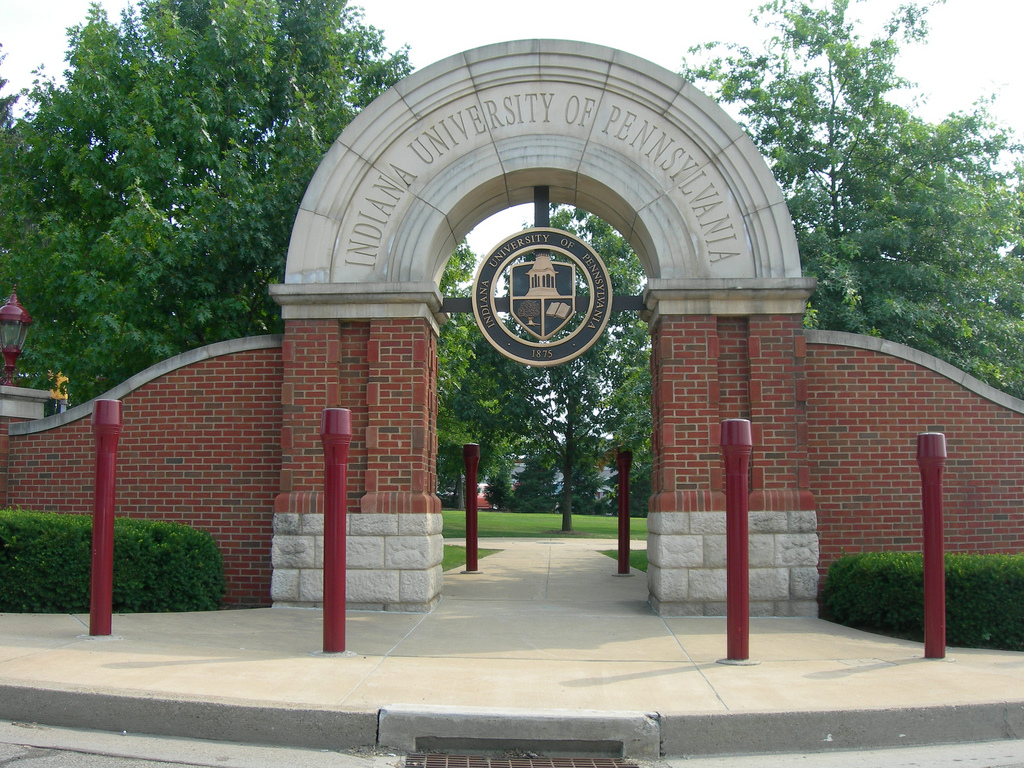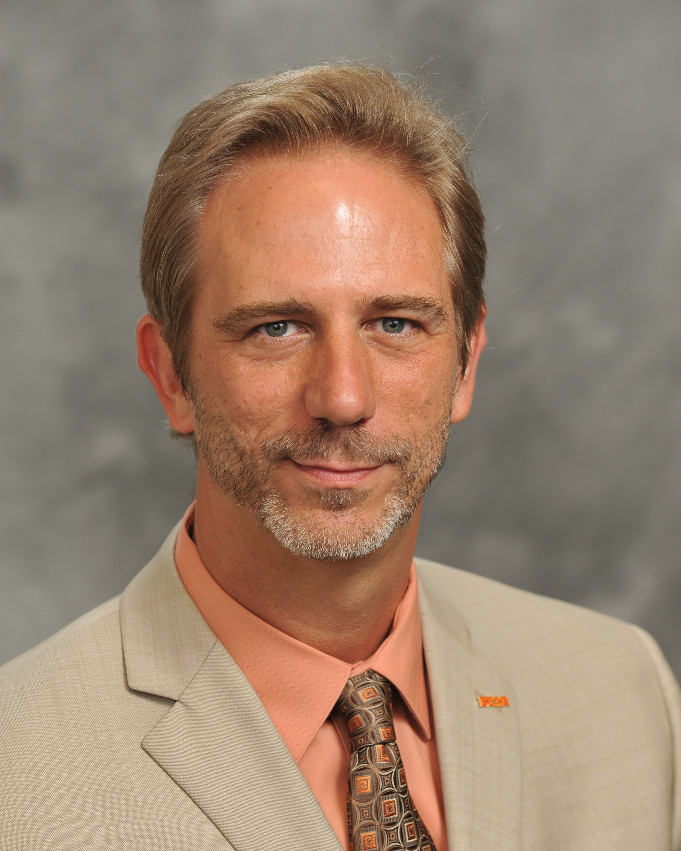Religion Professors Become Flashpoint in Campus Culture Wars
Editor’s Note: Last week, the Chronicle of Higher Education reported on the story of Dr
Editor’s Note: Last week, the Chronicle of Higher Education reported on the story of Dr. Alison Downie, an associate professor in the Department of Religious Studies at Indiana University of Pennsylvania, who earlier this year became a target of right-wing media and other attacks when a student publicly accused her of unfairly disciplining him for expressing his opinions ("How a Student Got Kicked Out of Class—and Became a Conservative Hero," May 31). Sightings invited Dr. David Gushee, president of the American Academy of Religion, to reflect on her story and its implications for scholars of religion today.
 In late March, I received an email of a type that has become all too common in my experience.
In late March, I received an email of a type that has become all too common in my experience.
Professor Alison Downie of Indiana University of Pennsylvania reached out to me. Dr. Downie described herself as the subject of a right-wing social media harassment campaign initiated by an aggrieved student against whom she had taken a disciplinary action. She thought that based on my own experience I might be able to advise her as to what she should do. (I tell her story with her express permission.)
The nightmare engulfing Alison Downie began with a conflict in her “Self, Sin, and Salvation” class. The conservative student’s version of the story is that, in a discussion on transgender issues, Dr. Downie sought to silence him for his conservative/unpopular/politically incorrect opinions, and when he would not be silenced, she excluded him from class as part of unfair disciplinary action against him. Another student in the class offered a very different take on what happened, but the story the student told was that he was disciplined for saying there are only two genders. It was off to the races after that.
The student went to the conservative media, which climbed all over the story. Stories appeared in mainstream venues such as Fox News and the Daily Mail (UK), as well as various recyclings in Breitbart News, The Ralph Retort, Campus Reform, and further down the dark corners of the web. A social media petition demanding her firing was circulated. More ominously, Downie told me that someone called the police with a tip that she was planning to attack a church. This is called “swatting,” and people have died in the resulting police raids. The police arrived at Professor Downie’s door late on a Saturday night.
In their investigations of Downie, conservative media discovered certain blog posts that she had written. “Is God Funny?” (December 11, 2017) contains easy-to-caricature lines such as “Is God preposterous to you? He is to me.” Downie goes on to argue that it is not God she rejects, but certain “popular, preposterous” understandings of God. But there’s obvious material there for that leftist, anti-religious religion professor story.
Then, worse: the professor was an anti-Christian terrorist. It’s all there in “Sunday Shaming” (January 10, 2018). Downie tells the story of driving near a crowd of happy young evangelicals on what was for her a very sad Sunday morning. When one young man directs his “SMILE! It’s Sunday!” poster at her, she describes herself as feeling “slapped in the face, stunned, and then … enraged.” She continues angrily:
Though I drove on in steely silence, I wanted to slam on the brakes, storm into that cluster of shiny happy young people and throw down a Molotov cocktail of sudden death, mental illness, tragedy, and suffering of all kinds into their church street party … Rage boiled within me for miles and miles, churning over the shame these young people tossed around in an insular, and therefore, arrogant obliviousness.
Expressive writing, over the top; not a careful choice of words, that’s for sure. But not a problem for the author, until a complaint was lodged and the trolls descended.
So, take a religious studies professor with an evangelical background that she has rejected, who now teaches religion and women, gender, and sexuality studies at a state university in a conservative part of rural America. Each day in class she follows the canons of classroom instruction as she understands them, and for years she never faces a student complaint. She encounters a student whose behavior in her class, by his own report, is fueled by the conviction that his entire college experience has been characterized by witnessing the “intellectual abuse of power” against people like him. Their conflict one day leads to his suspension from class and his decision to go to the conservative-activist media, who (like the liberal-activist media) know how to conduct a campaign against a vulnerable target when they see one.
Their effort gains ammunition when they do a bit of googling and discover that the professor in question has done some semi-private blogging in which she has candidly revealed elements of her own inner life and religious journey: an evangelical past, a rejection of popular evangelical theology, tragic grief in her personal life, and an occasional visceral reaction to happy-all-the-day evangelical young people who (she assumes) know nothing of the suffering of people like herself. She has not written these pieces in view of their discovery by people who want to hurt her. The material is then easily weaponized for a campaign against her.
The broader backdrop is America, circa 2018, and the culture wars as we now find them in relation to academia. Conservatives express constant frustration that academia is in the grip of liberal idiocy and political correctness run amok, and that young people with conservative views are oppressed and silenced. A cottage industry of college-watchers monitors the daily campus scene looking for evidence to support this narrative. Frankly, sometimes there is evidence. But other times there is suspicion that becomes certainty even without evidence.
I teach college students every semester at Mercer University in Macon, right in the heart of red-state Georgia. The cohort of students that I see in this mid-state university probably reflects overall trends among their generation, leaning liberal on most social issues and not enamored of the GOP in the era of Donald Trump. But I also see a minority of students who are social and political conservatives.
This past semester I encountered for the first time a conservative student in one of my classes who communicated to me his sense of being outnumbered, of being in a minority, of not feeling certain that he could express his viewpoint without incurring the disapproval of his peers. Fortunately, he felt that he could speak honestly to me in private. He did not view me as an enemy, he did not disrupt my class, and he did not gin up media attention to make my life miserable or cost me my job. I, in turn, sought to address his commitments and worries as well and as fairly as I could, to the point of altering a final paper assignment to give him the opportunity to express his concerns at length—to which I responded at length.
The case of Professor Downie teaches many lessons, among them the disturbing one that anything a professor says or writes in any context can be used against us in a national campaign if we become somebody’s target, and that targeting can quickly move from being annoying to being genuinely dangerous. All the evidence I have seen suggests that it is especially adjunct, non-tenured, female, non-white, and other relatively powerless professors who face a disproportionate amount of this kind of harassment, and that cautious administrators may not defend their faculty.
Education requires at least a modicum of trust and good will. This is not often explicitly articulated in syllabi, though perhaps it should be. Education is a shared journey of discovery in which students and professors both participate. We reflect on a shared set of hard texts and hard questions and seek to make progress in understanding both. To engage these texts and questions seriously involves a certain amount of vulnerability on all sides.
If our classrooms become sites in which all trust is lost, in which either student or faculty provocateurs actively seek conflict, in which a single conversation gone wrong inevitably becomes a social-media firestorm the next week, education will become impossible. Just turn out the lights and go home, it’s over.
It would be easy simply to say to my faculty peers: in this context of mistrust, watch your back, know that you have enemies ready to pounce, ask how this or that media quote or blog post of yours will look when turned into a headline on Breitbart, and just be careful.
That’s all true. But the deeper challenge is this: whether professors of religion can contribute to a bit more trust, a bit more mutual understanding, and a bit of progress toward healing the divisions that are tearing our country apart—and whether their students will give them a chance to do so.
Photo Credit: Jimmy Emerson/Flickr (cc)
 David P. Gushee is the Distinguished University Professor of Christian Ethics and director of the Center for Theology and Public Life at Mercer University. Widely regarded as one of the world’s leading Christian ethicists, he is author, co-author, editor, or co-editor of 22 books and approximately 150 book chapters, journal articles, and reviews. He was elected by his peers to serve as the current president of the American Academy of Religion, and is also immediate past president of the Society of Christian Ethics. David P. Gushee is the Distinguished University Professor of Christian Ethics and director of the Center for Theology and Public Life at Mercer University. Widely regarded as one of the world’s leading Christian ethicists, he is author, co-author, editor, or co-editor of 22 books and approximately 150 book chapters, journal articles, and reviews. He was elected by his peers to serve as the current president of the American Academy of Religion, and is also immediate past president of the Society of Christian Ethics. |
Sightings is edited by Brett Colasacco (AB’07, MDiv’10), a PhD candidate in Religion, Literature, and Visual Culture at the University of Chicago Divinity School. Sign up here to receive Sightings via email. You can also follow us on Facebook and Twitter.

